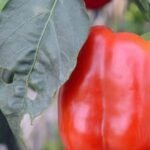Are you wondering, “Is Scotts Brown Mulch safe for vegetable gardens?” Choosing the right mulch for your vegetable garden is crucial for promoting healthy plant growth and protecting the soil. In this article, we will delve into the world of mulch and explore whether Scotts Brown Mulch is a safe and effective option for your vegetable garden.
Mulch plays a vital role in maintaining moisture, reducing weed growth, and improving soil quality in vegetable gardens. It also acts as a protective barrier for delicate vegetables, preventing them from coming into contact with the ground. However, not all types of mulch are suitable for vegetable gardens, and it’s essential to carefully consider the ingredients in your chosen mulch to ensure it promotes a healthy growing environment.
Scotts Brown Mulch is a popular choice among gardeners due to its natural appearance and ability to suppress weed growth. Made from shredded hardwood, this mulch is designed to enhance the overall aesthetics of the garden while providing practical benefits. However, before incorporating Scotts Brown Mulch into your vegetable garden, it’s important to understand its composition and any potential risks associated with its use.
What Is Scotts Brown Mulch
Scotts Brown Mulch is a popular choice for gardeners looking to enhance the growth of their vegetable gardens. It is a finely shredded mulch product made from natural forest products, making it an organic option for mulching. The brown color of this mulch comes from a non-toxic dye that is added during the production process. Scotts Brown Mulch also contains a blend of nutrients and minerals that can benefit the soil in vegetable gardens.
The composition of Scotts Brown Mulch typically includes a mixture of hardwood and softwood materials, providing a good balance of density and moisture retention. This allows the mulch to effectively regulate soil temperature, conserve moisture, and suppress weed growth in vegetable gardens. Additionally, as the mulch breaks down over time, it can contribute valuable organic matter to the soil, improving its overall structure and fertility.
One of the key features of Scotts Brown Mulch is its ability to create an attractive and uniform appearance in vegetable gardens. The fine texture and rich color of this mulch can enhance the visual appeal of garden beds while providing all the benefits of traditional mulching materials. It can be easily spread around plants and throughout garden beds, creating a well-groomed and professional-looking landscape for vegetable gardening enthusiasts.
The Benefits of Using Mulch in Vegetable Gardens
When it comes to vegetable gardening, using mulch can provide a wide range of benefits that can significantly enhance the growth of your vegetables. Scotts Brown Mulch, in particular, is designed to help retain moisture in the soil, regulate soil temperature, and suppress weed growth.
This type of mulch also adds organic matter to the soil as it decomposes, which can improve overall soil health and fertility. Additionally, using mulch like Scotts Brown Mulch can also reduce the risk of erosion and compaction, ensuring that your vegetable garden remains healthy and thriving.
Retaining Moisture and Regulating Soil Temperature
One of the key benefits of using mulch in vegetable gardens is its ability to retain moisture in the soil. By acting as a barrier between the sun and the soil, mulch helps to prevent water evaporation, ensuring that your vegetables have access to a consistent water supply.
In addition to retaining moisture, mulch also plays a role in regulating soil temperature. This is especially important for vegetable gardens, as consistent soil temperatures can promote healthy root development and overall plant growth.
Suppressing Weed Growth
Another advantage of using Scotts Brown Mulch or similar products in vegetable gardens is their ability to suppress weed growth. Weeds not only compete with your vegetables for nutrients and water but can also create an unattractive growing environment. By creating a barrier over the soil surface, mulch prevents weed seeds from germinating and taking over your garden beds. As a result, you will spend less time weeding and more time enjoying a healthier vegetable garden.
Improving Soil Health
In addition to retaining moisture and suppressing weeds, using mulch like Scotts Brown Mulch can also add valuable organic matter to the soil as it breaks down. This organic matter improves overall soil structure and fertility by providing essential nutrients for your vegetables’ growth. Healthy soil leads to healthier plants with improved resistance to pests and diseases – all critical factors for a successful vegetable garden.
Safety Concerns
When it comes to choosing mulch for your vegetable garden, one of the most important considerations is the presence of chemicals and additives in the product. Scotts Brown Mulch is a popular choice for many gardeners, but it’s essential to understand the potential safety concerns before using it in your vegetable garden.
Chemicals and Additives in Scotts Brown Mulch
Scotts Brown Mulch is made from shredded hardwood and dyed with iron oxide to achieve its dark brown color. While the company claims that the dye used is safe for plants and animals, some gardeners may still have concerns about the potential presence of other chemicals or additives in the product.
Evaluating Safety for Vegetable Gardens
When considering whether Scotts Brown Mulch is safe for vegetable gardens, it’s crucial to evaluate any potential risks associated with the product. Some mulches may contain herbicides or pesticides that could harm vegetable plants, so it’s important to carefully read the product label and research any potential issues before using it in your garden.
Taking Precautions
To ensure that you are using Scotts Brown Mulch safely in your vegetable garden, consider taking precautions such as testing a small area of your garden first, monitoring plant health after applying the mulch, and choosing organic or natural mulch alternatives if you have concerns about chemical additives. Additionally, properly preparing your soil and following best practices for mulch application can help mitigate any potential risks associated with using this product in your vegetable garden.
Understanding the Potential Risks
When considering using mulch in your vegetable garden, it’s important to understand that not all types of mulch are safe for this purpose. Scotts Brown Mulch is a popular choice among gardeners, but it’s essential to be aware of the potential risks associated with certain types of mulch that can harm your vegetable garden.
One potential risk of using the wrong type of mulch in your vegetable garden is the presence of chemicals and additives that can be harmful to the plants. Some mulches may contain synthetic materials or toxic substances that can leach into the soil and affect the growth of your vegetables. Additionally, certain dyes or colorants used in mulch products may contain harmful ingredients that can pose a risk to your vegetable garden.
Another risk to consider is the potential for certain types of mulch to create an environment that is conducive to pests and disease. For example, some organic mulches, if not properly processed or aged, can attract pests such as termites or promote fungal growth that can negatively impact the health of your vegetable plants.
To mitigate these potential risks and ensure the safety of your vegetable garden, it’s crucial to carefully select a safe and suitable mulch product like Scotts Brown Mulch. By following best practices for using mulch in vegetable gardens, you can help protect your plants and promote healthy growth. This includes proper application techniques, monitoring for any signs of detrimental effects, and choosing a high-quality, safe product like Scotts Brown Mulch for your vegetable garden’s needs.
- Be sure to read the label and ingredients list on any mulch product before using it in your vegetable garden
- Consider natural, organic options for mulch that are free from harmful chemicals and additives
- Regularly inspect your vegetable garden for any signs of pest infestation or disease related to the use of mulch
Best Practices for Using Mulch in Vegetable Gardens
When using Scotts Brown Mulch in vegetable gardens, it is important to follow some best practices to ensure the safety and health of your plants. First and foremost, it’s crucial to read and follow the manufacturer’s instructions for the proper application of the mulch. This will help you understand the recommended quantity to use and how often it should be replenished throughout the growing season.
In addition, before applying Scotts Brown Mulch, ensure that your vegetable garden is weed-free and well-watered. Applying mulch on moist soil can help retain moisture, regulate soil temperature, and prevent weed growth. It’s also important to avoid piling mulch directly against the plant stems as this can lead to moisture retention, potentially causing rot or disease.
When using Scotts Brown Mulch in vegetable gardens, it’s essential to monitor the condition of the mulch over time. As organic mulch breaks down, it provides nutrients to the soil and improves its overall quality. Regularly check for signs of mold or mildew, which could indicate excessive moisture retention. If such issues arise, consider removing and replacing the affected areas with fresh mulch.
By following these best practices when using Scotts Brown Mulch in vegetable gardens, you can ensure that your plants thrive in a safe and healthy environment. Properly applied mulch can contribute to increased yields, reduced water usage, and improved soil structure – all of which are essential for successful vegetable gardening.
Conclusion
In conclusion, when it comes to choosing the right mulch for your vegetable garden, it is important to carefully consider the potential hazards and benefits of different options. Scotts Brown Mulch, while popular and widely available, does pose potential safety concerns due to the chemicals and additives used in its production. However, with proper knowledge and best practices, you can still use Scotts Brown Mulch safely in your vegetable garden.
It is essential to thoroughly research any mulch product you are considering using in your vegetable garden. Understanding the ingredients and potential risks associated with each type of mulch is crucial for making an informed decision. While Scotts Brown Mulch may contain certain chemicals and additives, there are ways to mitigate these risks and ensure the safety of your vegetable garden.
Ultimately, ensuring the health and safety of your vegetables should be a top priority when choosing mulch. By following best practices, such as using a barrier between the mulch and the soil or choosing organic alternatives, you can create a safe environment for your vegetables to thrive. As with any gardening decision, it is important to weigh the pros and cons before selecting the best mulch for your vegetable garden’s needs.
Frequently Asked Questions
Can You Use Scotts Mulch in Vegetable Garden?
Scotts mulch can be used in a vegetable garden, but it’s important to choose the right type. Look for natural and organic options without any harmful chemicals that could affect the vegetables.
Is Brown Mulch Safe for Vegetable Gardens?
Brown mulch is generally safe for vegetable gardens as long as it is made from natural materials without any toxic chemicals. Always check the label before using any mulch in your vegetable garden to ensure it’s safe.
What Is Scotts Brown Mulch Made Of?
Scotts brown mulch is typically made of natural materials such as wood fibers or bark. It is designed to help retain moisture in the soil, suppress weed growth, and improve the overall appearance of landscaping while also providing organic matter to enrich the soil over time.

If you’re looking to get into vegetable gardening, or are just looking for some tips on how to make your current garden better, then you’ve come to the right place! My name is Ethel and I have been gardening for years. In this blog, I’m going to share with you some of my best tips on how to create a successful vegetable garden.





